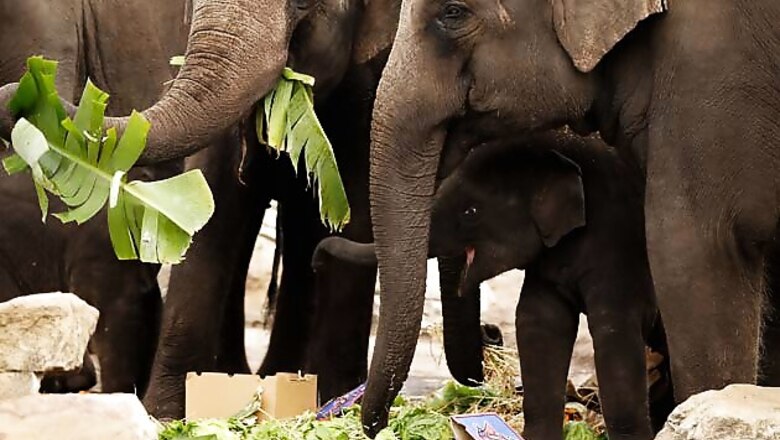
views
The formation of anti-depredation squads on the periphery of Dudhwa Tiger Reserve, has resulted in over 60 per cent drop in man-elephant conflicts in the area, officials said.
Since the formation of ADS in three forest villages of DTR Bhagwantnagar, Gulra Tanda and Baidhiya Kalan in June last year, the conflict cases have dropped considerably to just 73 as compared to 176 cases in 2011-2012, Field Director Shailesh Prasad said.
Citing a Worldwide Wildlife Fund (WWF-India) survey report, he said over 60 per cent reduction in human-elephant conflict cases was encouraging. "The anti-depredation squads helped to reduce crop depredation from 103.59 acres to just 69.9 acres last year," he said.
The idea of anti-depredation squad hit the Dudhwa authorities a few years back when migratory tuckers preferred to stay in the forests for prolonged periods, he said. However, their prolonged stay resulted in huge losses for forest villagers, as these herd of wild tuckers pounced upon their standing crops and destroyed their houses.
According to Prasad, in 2011, range officers of DTR and WWF-India officials visited Sonitpur in Assam where ADS were operating successfully. In June last year Hiten Baishya and Dipen Kalita of north bank landscape (NBL)-WWF visited Dudhwa and identified the three strategic villages where wild tusker movements were frequent, he said.
They trained the villagers in elephant behaviour and ways to tackle them, ensuring their own safety, he said adding that watch towers were erected at vital points and equipments were provided to villagers of the squad. "The ADS head in the village deputed a villager on the watch tower to monitor the movement of the tuckers and in case of need, he intimated the ADS head as well as the nearby forest staff," the Prasad said. "The mechanism has helped to reduce tension in the villages besides reducing the crop and property losses," he added.




















Comments
0 comment